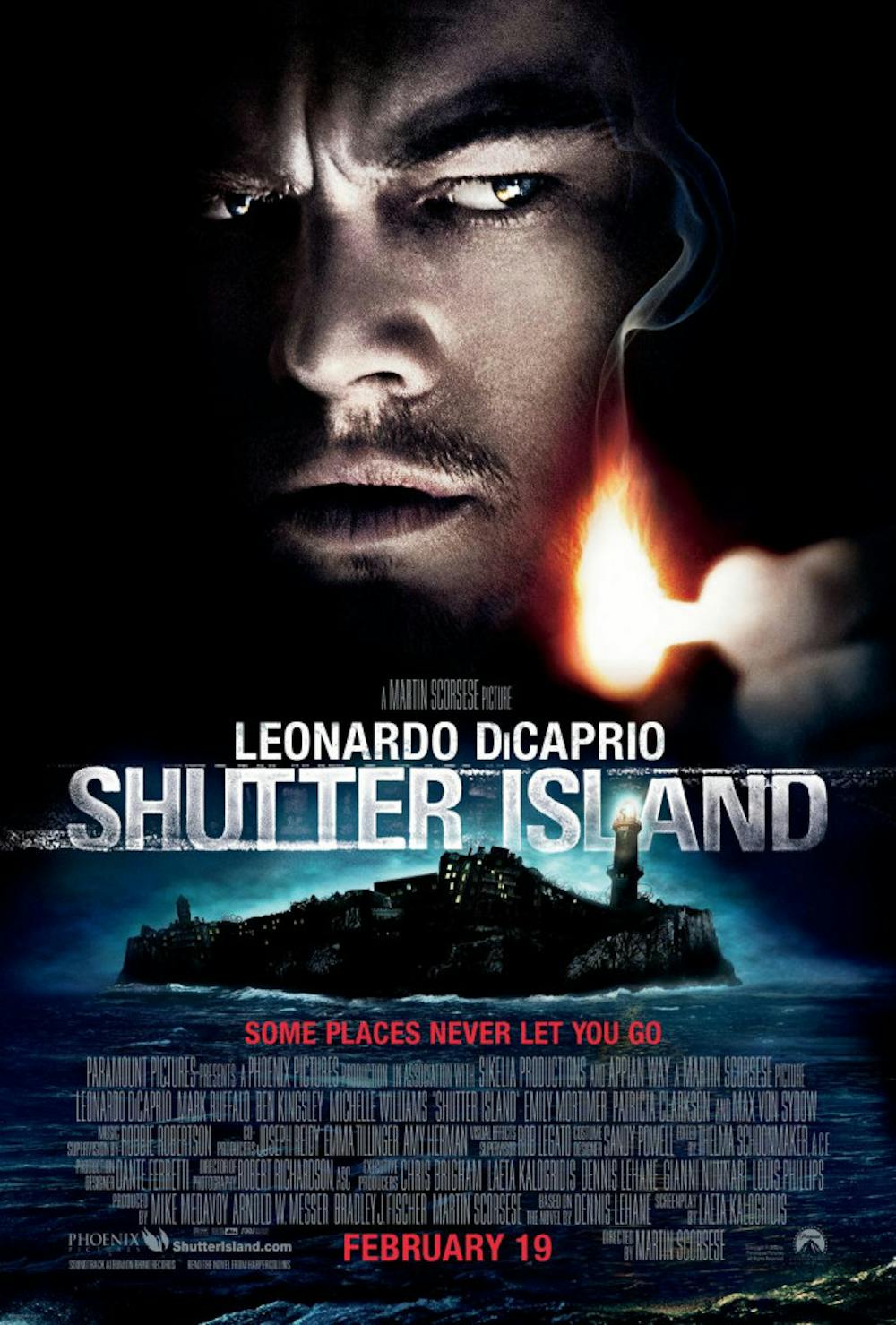For this week’s issue of Reel Critic, I was asked to pick a scary movie to review. For the sake of providing insight into what I believe to be an extremely underrated film, I decided to review Martin Scorsese’s “Shutter Island” (2010). “Shutter Island” is a psychological thriller of utmost manipulation. In the hands of an able and brilliant filmmaker such as Scorsese, the viewer is ready and willing to forgo any sense of control and hand over their fate. In this film, there isn’t the common sense of fear; no jump-scares that shock your body to the core. Yet somehow “Shutter Island” is the scariest film I’ve seen in quite some time. It preys upon the very origin of fear: lack of control. Scorsese manipulates this, contorts it, and presses so firmly on the vein of fear that one cannot help but grasp their chair with white knuckles for the entirety of its duration.
In post-WWII America, U.S. Marshall Teddy Daniels (Leonardo DiCaprio) and his new partner Chuck (Mark Ruffalo) have been tasked with investigating the mysterious disappearance of a child-murdering mother from Shutter Island, a place that houses the country’s most violent, criminally insane patients. There is only one way to enter and exit the island, the shabby old ferry that transports Teddy and Chuck upon their arrival. Right from the outset, something is amiss. There is an unavoidable feeling that everyone is withholding information.
Before the film even begins, the low reverb of Laeta Kalogridis’s score echoes under the opening credits, conveying a forboding message of dread and ominousness. Teddy and Chuck are unmistakably outsiders. Despite being called in to investigate, it is palpable that they are unwanted. The camera hides behind the inhabitants of the island, peering through the bushes, over tables and looking down from above, making the viewer view the marshalls not as they see themselves, but as they are seen by those around them. Information on the island is sparse and comes only in random dottings.
Upon their immediate arrival, it is clear that Teddy and Chuck have no control. They must surrender their weapons, leaving them defenseless, and are subject to the laws and authorities of the island due to a Massachusetts constitutional subsection. Much like Teddy and his partner, the viewer has forsaken any semblance of control and has placed their fate entirely in the hands of the film, praying that nothing causes them to burst out in sudden momentary panic.
The brilliance of “Shutter Island” lies in its ability to ratchet up the tension, making it ever-present, yet always building. Within 10 minutes of the film’s opening, the hairs on the back of your neck begin to rise, alerting you to an imminent sense of danger. As the film continues, you begin to feel your spine tingle and your legs stiffen, as though you too are trapped in the same way that Teddy is. The island is completely locked off from the rest of the world. Eleven miles of ocean separate it from any other land and there is only one ferry that carries people to-and-fro. An impending storm cuts the phone lines, severing any ties to the main world. Teddy and Chuck are completely alone, and so too is the audience. No one is to be trusted, not even the people we take for granted as our allies. It is best to watch this film on a rainy day, when the rain slaps against your windows and the white bursts of lightning echo the blinding, shocking revelations of the film.
“Shutter Island” is a film based upon the visceral panic inspired by powerlessness. It is a two and a half hour feeling of free-falling, with nothing to hold onto, no grounding truth that provides refuge from the raging storm. The film’s ultimate twist questions any semblance of power the audience thought it had, revealing the hidden demons that lie dormant within each of us, and with it comes even more ambiguity and a final quote that will be argued by film viewers everywhere as to the meaning of its implications. So I’ll leave you with the very same question the film poses: “What would be worse: to live as a monster or die a good man?”

Owen Mason-Hill ’22 is the Senior Arts & Culture Editor.
He previously served as a staff columnist, writing film reviews under the Reel Critic column. Mason-Hill is studying for a Film and Media Culture major, focusing his studies on film criticism and videographic essays.
His coverage at The Campus focuses primarily on film criticism, and has expanded to encompass criticism of other mediums including podcasts, television, and music under his column “Direct Your Attention.”




